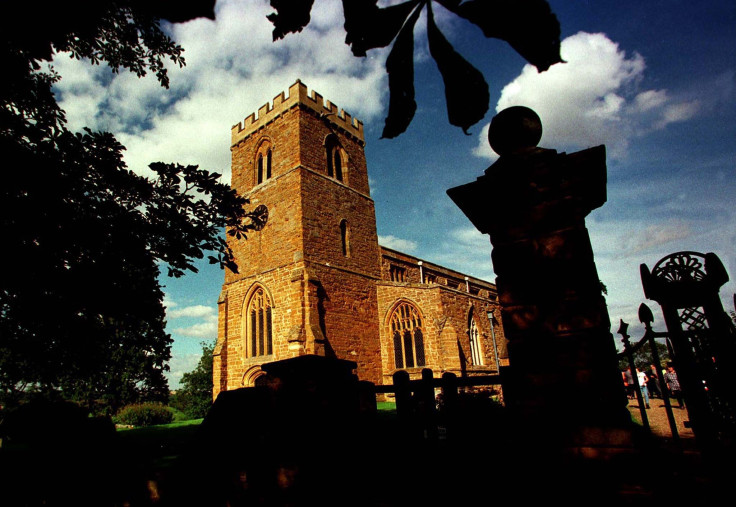What To Expect From Donald Trump Presidency: Amid Mass Deportation Threat, Cities, Churches Protect Immigrants

With only a week left before President-elect Donald Trump is sworn in, Catholic churches in the California's Bay Area have started to identify sanctuaries for undocumented immigrants who might face deportation under the Trump administration.
The Catholic Church in Santa Clara County has identified about 20 places of worship that will serve as safe houses for immigrants who might face deportation if Trump follows through with his pledge to tackle illegal immigration. The Rev. Jon Pedigo of the Dioceses of San Jose, who is a part of a community organization called PACT (People Acting in Community Together), said activists involved in the project are worried about immigrant communities in the Bay Area, particularly when it comes to the Trump administration potentially separating family members, including household breadwinners.
Pedigo said Trump’s immigration policy is not only morally wrong, but it’s irresponsible.
“It’s wrong to use scapegoat, prejudice and anger as a public policy,” he said.
He said if Trump deports immigrants there would be a “disarray to fill job positions – small and large companies will feel it in a crunch.”
Under federal law, Immigration and Customs Enforcement officials are directed to avoid raiding churches, schools and hospitals. Pedigo, who is in charge of organizing and policy for PACT, which was founded in 1985, is working with other clergymen to ensure immigrants will receive economic support, housing, counseling and other services if they choose to move into the local churches to avoid possible deportation.
"It’s to prepare for the worst, but hope for the best, in case anything happens so we won’t get caught off guard,” Pedigo said.
Pedigo held meetings with various community leaders to discuss the proposal. In some instances, residents expressed anger that the church would seek to shield undocumented immigrants from federal immigration officials.
"Different people we've encountered have expressed disagreements with the idea," he said.
The Santa Clara sanctuary movement comes at a time when various Democratic and progressive leaders across the nation are vowing to fight Trump's deportation policies and protect undocumented immigrants who they say contribute to the economic and cultural fabric of the United States. Mayor Bill de Blasio and 30 other city and county leaders sent President Barack Obama an open letter in December urging him to pass any executive action that could offer sanctuary to undocumented immigrants ahead of Trump moving into the White House. The government officials also vowed to protect immigrants from federal immigration enforcement.
Churches beyond Santa Clara County are getting involved, too. In Massachusetts, four Brockton churches have pledged to take in immigrants fearful of the incoming Trump administration. In Pennsylvania, a coalition of 17 churches and two synagogues in Philadelphia have offered to help unauthorized immigrants. The Episcopal Diocese of Los Angeles, with more than 140 congregations, has also declared itself a “sanctuary diocese.” In all, roughly 450 houses of worship nationwide are providing some form of sanctuary, including living space, financial assistance or rides for schoolchildren, CBS News reported.
In Santa Clara County, San Jose Mayor Sam Liccardo told the International Business Times he was working on overhauling city regulations to make the process easier for churches to provide sanctuary for immigrant families. Liccardo said he was informing members of the community about their rights to provide sanctuaries without "restrictions and red tapes."
However, he warned that city laws did create some local restrictions, and that's where he comes in.
"As soon as something becomes residential, the city comes with codes and policies," he said.
In San Jose, about 37 percent of the population is foreign born.
"This is a city of immigrants," Liccardo said. "All I can do is stand up for them."
To be sure, Liccardo said there is only so much he and other critics can do to stop mass deportations if Trump acts on his campaign promises.
"We do not have the authority to stop federal laws," he said. "It's unrealistic."
Since the beginning of the 2016 presidential election, Trump made it known that one of his top priorities upon entering office was to deport undocumented immigrants. Trump said in his first press interview as president-elect shortly after winning the November election that he would immediately deport up to 3 million people after moving into the Oval Office.
“Day One, my first hour in office, those people are gone,” Trump said in a speech delivered in Phoenix in August. “And you can call it deported if you want. The press doesn't like that term. You can call it whatever the hell you want. They're gone.”
Pedigo said he and other activists don't want to necessarily "challenge the administration, it’s simply about helping people in need.”
“We are just following our religious principal, which is to help our brothers and sisters,” he said.
© Copyright IBTimes 2025. All rights reserved.






















